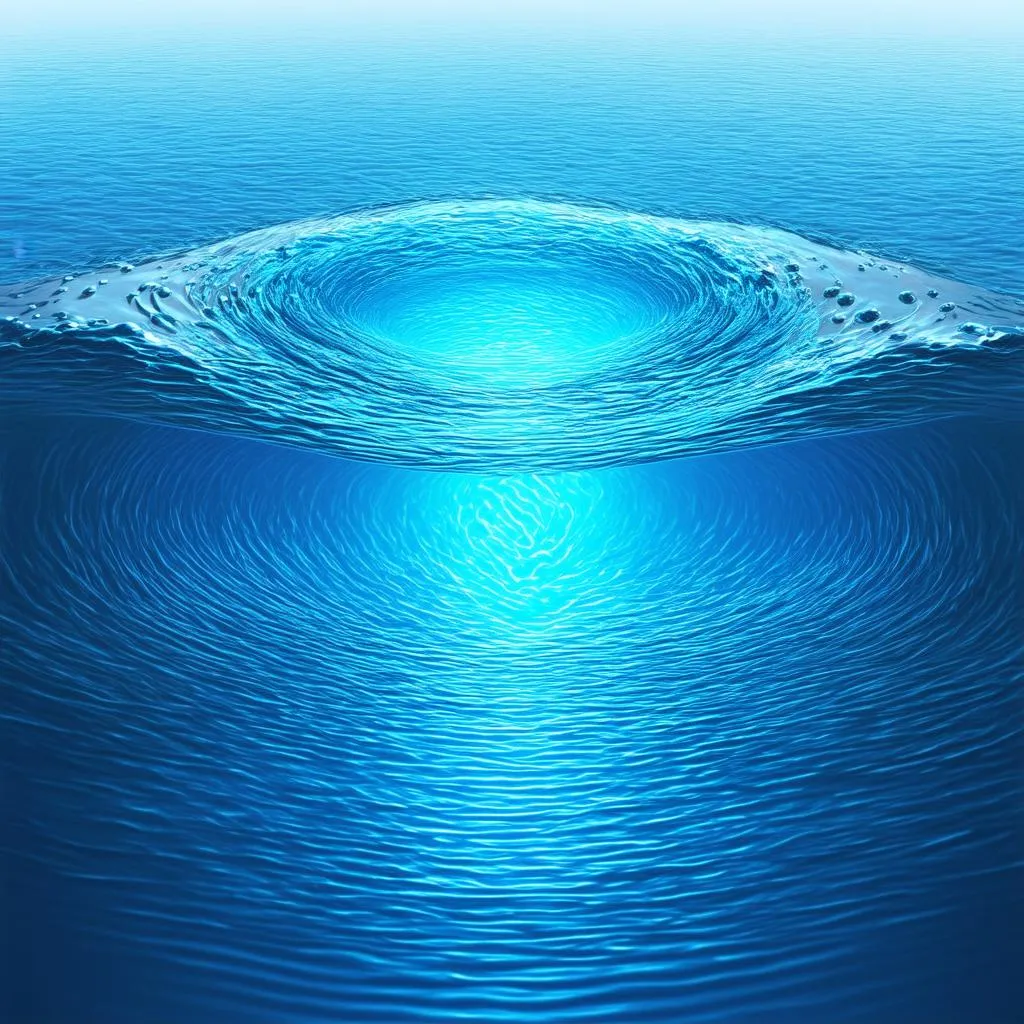Have you ever wondered why whale songs can travel thousands of miles across oceans, or how dolphins communicate with each other over vast distances? The answer lies in the fascinating realm of underwater acoustics, where sound behaves in ways that might surprise you. Let’s dive deep into the science behind sound propagation and explore whether sound does indeed travel farther in water.
The Science of Sound: Why Water is a Better Conductor Than Air
Before we answer the burning question, let’s understand a bit about how sound actually travels. Sound is a form of energy that travels in waves, created by vibrations. These vibrations cause the molecules in a medium – be it air, water, or even solids – to bump into each other, transferring energy as they go.
The key difference between how sound travels in water versus air lies in the density of the mediums. Water is much denser than air, meaning its molecules are packed closer together. This tighter arrangement allows sound waves to travel faster and with less energy loss in water compared to air.
Think of it like this: imagine trying to send a ripple through a crowded room versus an empty one. In the crowded room (representing water), the ripple would travel further and faster because it’s easier for the people to bump into each other and pass along the energy.
Does Sound Travel Farther in Water?
The short answer is: yes, sound generally travels farther in water than in air. This is because:
- Lower Attenuation: Sound waves lose energy less rapidly in water, a phenomenon called attenuation. This means they can travel greater distances before becoming too faint to hear.
- Faster Speed: Sound travels approximately four times faster in water than in air (around 1,500 meters per second in water compared to 343 meters per second in air). This increased speed also contributes to its ability to cover longer distances.
Exploring Real-World Examples: From Whale Songs to Sonar Technology
The impressive distances sound can travel in water have profound implications in nature and technology:
- Marine Life Communication: Whales, dolphins, and other marine animals rely heavily on sound for communication, navigation, and hunting. The fact that sound travels far in water allows them to interact over vast distances.
- Sonar Technology: Sonar systems, used for underwater navigation and exploration, utilize the properties of sound in water. By emitting sound pulses and analyzing the echoes, sonar can map the ocean floor, locate objects, and even study underwater currents.
Planning Your Next Aquatic Adventure? Consider the Soundscape!
Whether you’re scuba diving in the coral reefs of the Great Barrier Reef or kayaking in the tranquil waters of Ha Long Bay, remember that you’re immersed in a world rich with sound. The gentle lapping of waves, the clicking of shrimp, or even the distant calls of whales all contribute to a unique underwater soundscape.
Tips for Enhancing Your Underwater Auditory Experience:
- Listen Closely: Take the time to simply listen to the sounds around you. You might be surprised by the diversity and beauty of underwater acoustics.
- Respect Marine Life: Remember that sound is crucial for marine animals. Keep your distance from animals and avoid making loud noises that could disrupt their communication.
- Protect Our Oceans: Noise pollution from human activities can have detrimental effects on marine life. By being mindful of our impact, we can help preserve the wonders of the underwater world.
Frequently Asked Questions About Sound in Water
- Why does sound travel faster in warmer water? Sound travels faster in warmer water because the molecules have more energy and vibrate faster, allowing for quicker transmission of sound waves.
- What factors can affect sound propagation in water? Factors like temperature, salinity, and pressure gradients can all influence how sound travels in water.
- Can humans hear the same frequencies underwater as on land? No, our ears are designed to hear best in air. While we can still perceive sound underwater, the frequency range and sensitivity are different.
 Underwater Sound Waves
Underwater Sound Waves
Unveiling the Secrets of Sound with travelcar.edu.vn
Are you fascinated by the science of sound and its role in our world? Explore more captivating content on TRAVELCAR.edu.vn, your go-to resource for all things travel and beyond. Delve deeper into the mysteries of acoustics, discover the wonders of underwater exploration, or plan your next adventure to experience the magic of sound firsthand.
 Whale Song Communication
Whale Song Communication
We’d love to hear your thoughts! Share your comments, questions, and travel experiences below. Let’s continue to explore, learn, and appreciate the incredible world around us together.
